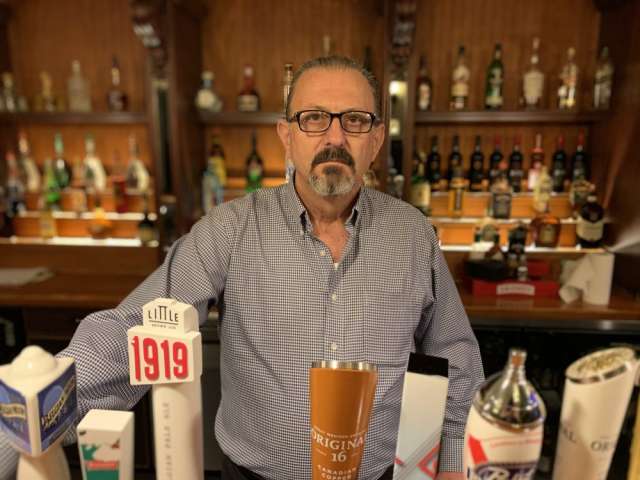Manitoba restaurants and pubs are on life support in the intensive care unit of Canada’s COVID-19 economic recovery.
Chris Graves, owner of the King’s Head Pub in Winnipeg’s trendy Exchange District, is one of the medics trying to resuscitate a business that flat-lined during the pandemic.
“The industry has been decimated – there’s no doubt,” he said from a table in his empty pool room. “Business is down 80%. COVID-19 has hit our industry the hardest in terms of economic pain.”
In response to community concern, Graves closed the King’s Head two weeks before the required date, missing the St. Patrick’s Day rush. Since then, his business has been one part grocery delivery service and one part pub.
“We truly believe that Manitoba’s restaurants and bars did their part to flatten the curve,” he said. “If not for that, thousands of people would’ve contracted the virus.”
“And if we are feeling the pinch, I already know for a fact that our industry is feeling the pain,” he said. “The industry’s pre-covid profit margins were only 4% to 5%. We’ve already seen the closures, and we have no foot traffic right now, because people are not coming downtown.”
The King’s Head has received some government help, but it’s not enough to survive as the business teeters on the edge of insolvency. Graves is worried for his staff, who’ve become like family.
“Our biggest concern is what happens next,” he said. “What happens when the funding isn’t there anymore? We are going to have even more debt, and the $40,000 government loan is still a loan. The gap loan that the province gave us is $6,000 – even if you were eligible, it’s negligible. It means nothing.”
In its pandemic configuration, the King’s Head is just an echo of its previous glory. Graves is spending $2,500 a month on daily cleaning and sanitizing. With strict social distancing protocols in place, tables are moved far apart, causing a reduction in seating capacity.
“If we don’t get tax relief soon, it’s going to be a disaster,” he said. “The Manitoba Government is still expecting us to pay our full business taxes. The city is still expecting us to pay full property tax. There’s been no subsidy whatsoever for personal protective equipment or sanitizer.”
Graves has considered placing barriers between tables in order to increase seating capacity, but the $30,000 expense is prohibitive.
“And at the end of this, Canada is going to be nearly $1 trillion in debt,” he said. “And if we are going to pay that debt, then we need businesses to be around.”
“That’s been our saving grace,” he said. “Lots of restaurants and bars in Manitoba are not reopening.”
Giannakis said that requirements to work from home during the pandemic have driven people from Winnipeg’s downtown core. Escalating crime and a devastated arts scene are also hurting business.
“The entire downtown is just done,” he said. “We are 80% down for lunchtime. We still do OK, but way, way down. We can survive for a few more months.”
Tony Siwicki, chairman of the Manitoba Restaurant and Food Association, and owner of Silver Heights Restaurant and Lounge, said that even though the industry is in trouble, he’s not giving up.
“We still have empty tables,” he said. “We are not even at half capacity in the dining room. Fridays and Saturdays we can fill the room and have a waiting list, but we have to have six feet between tables.”
Siwicki said that he has doesn’t know when the COVID-19 public health orders will change.
“That’s disheartening, trying to figure out how to keep the restaurant going at half capacity,” he said. “But we have to adapt. We are going to continue. We’ve gone through seven decades of challenges, but this is definitely not good for our bottom line.”
Twitter: JamesWestagteSn

